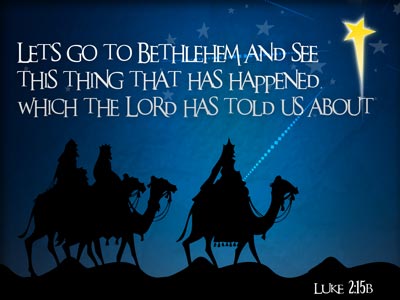-
A Journey To A New Beginning
Contributed by Raymond Lu on Aug 8, 2010 (message contributor)
Summary: To reform is to become a better person. That is what reformatories intend to do. But to transform means death to our self and to be spiritually born into Christlikeness. That is what the Holy Spirit can do.
Charles Colson said, and I quote, “Psychiatry, properly administered, can turn a schizophrenic bank robber into a mentally healthy bank robber. A good teacher can turn illiterate criminal into an educated criminal. But they are still bank robbers and criminals.” D.L. Moody said, “If you educate a robber of knots and bolts, after he graduates, he will steal the whole train.” It takes more than psychiatry and education to change a person. It takes the love of Christ. To reform is to become a better person. That is what reformatories intend to do. But to transform means death to our self and to be spiritually born into Christlikeness. That is what the Holy Spirit can do. It is a point of new beginning. From Moab to Jerusalem, from a stranger into a kin, from bitterness to blessedness, Ruth made a new beginning.
I. MOAB TO BETHLEHEM (vv.1-7)
When Naomi moved from Moab to Bethlehem, her two Moabite daughters-in-law who became widows, wanted to go with her. On the way, Orpah returned to Moab, but Ruth was determined to go with Naomi to the land where God’s people are. “…Ruth said (to Naomi), Do not urge me to leave you or turn back from following you; for where you go, I will go, and where you lodge, I will lodge. Your people shall be my people, and your God, my God. Where you die, I will die, and there I will be buried. Thus may the Lord to me, and worse, if anything but death parts you and me” (vv. 16,17). It cost Ruth everything to follow Naomi to Bethlehem: Her family, tribe, country and her god.
Biblical background tells that the Moabites were descendants of Lot from his incestuous union with his firstborn daughter (Gen. 19:30-38 NBD). And they were Jew’s enemies because of the way they had treated Israel during their pilgrim journey from Egypt to Canaan (Deut.23:3-6, Nu. 22,25). During the time of the Judges, Moab had invaded Israel and ruled over the people for eighteen years (Judges 3:12-14); and they were proud people (Isa. 16:6)… It was Moabite women in Moses’ day who seduced the Jewish men into immorality and idolatry; and as a result, 24,000 people died (Nu. 25). Moabites worship the god Chemosh (Nu. 21:29; 1 Kings 11:7,33), who accepted human sacrifices (2 Kings 3:26,27) and encouraged immorality (Nu. 25).
Ruth’s journey to a new beginning means leaving Moab toward Bethlehem. It means leaving the land of idolatry and immorality in order to live in the land of God. It means leaving her people to identify with God’s people. It means leaving her god Chemosh to worship the God of Israel. Bethlehem means “the house of bread.” When Naomi and Ruth arrived in Bethlehem, Naomi allowed Ruth to glean at the field for food. Ruth is at the center of God’s will, but she has to glean for their food, and enjoy God’s provision. “Providence assists not the idle.” While she was gleaning, it is amazing that like a tapestry, God designed everything according to His plan. In God’s will, everything happens by way of appointment, and not by accident. The owner of the field where Ruth was gleaning is a man of great wealth, the kinsman of Elimelech, Noaomi’s husband (v.1), whose name is Boaz. The kinsman-redeemer would brings hope and blessing to Naomi and Ruth.
Levitical law says that whenever they reap a harvest, God’s people were to consider the poor and leave the gleaning for them. The Bible tells us that Jesus has a special concern for the poor and widow. Ruth is the poor widow who is in need of mercy and grace in order to enjoy the bread in Bethlehem. When Boaz saw Ruth, he was in love at first sight. It is a picture of grace. “Grace means that God makes the first move to come to our aid, not because we deserve anything, but because He loves us and wants us for Himself (Warren Wiersbe). “We love , because He first loved us” (1 John 4:19).
2. STRANGER TO A KIN (vv. 8-15).
Ruth received unmerited favor from Boaz. Bible students have seen in Boaz a picture of our Lord Jesus Christ in His relationship to His bride, the church. Like Ruth, the lost sinner is outside the covenant family of God without claim of God’s mercy. But God took the initiative and provided a way for us to enter His family through faith in Jesus Christ. Boaz invites Ruth to glean in his field. He protected and provided for Ruth. Boaz’s kindness overwhelmed Ruth. And surprisingly, Boaz invites Ruth to eat with him at His table. It reminds me of what Jesus said in Rev. 3:20 “Behold, I stand at the door and knock. If anyone hears my voice and opens the door, I will come in to him, and will dine with Him, and He with me.” Just like Ruth, we had been strangers. But Jesus invited us at His table to fellowship with Him.

 Sermon Central
Sermon Central



